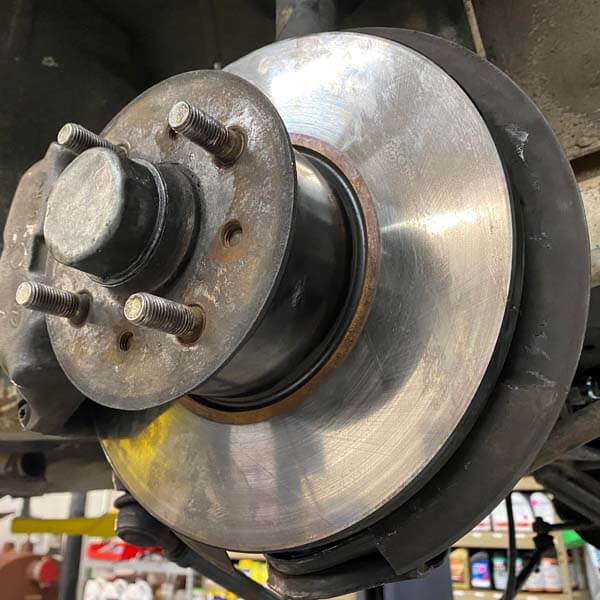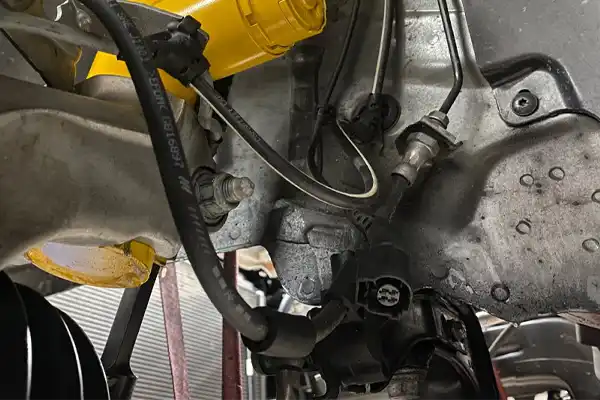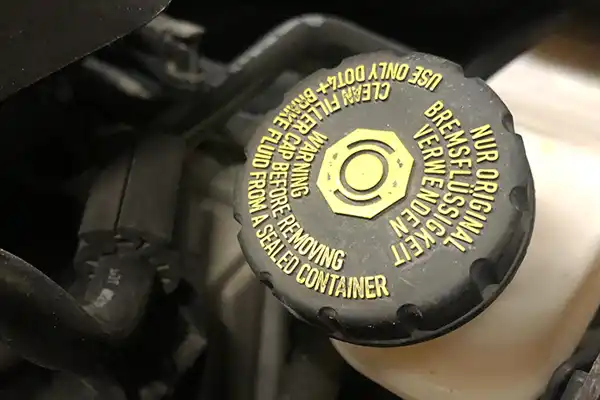How Much Brake Fluid Do I Need?
Many different components work together to bring your car to a stop. Braking systems rely on hydraulic fluid running through the brake lines to transfer and amplify the force of your foot stepping on the pedal, increasing the clamping pressure of the caliper.
Brakes live a demanding life. It’s not just the pads and rotors taking the abuse. Brake fluid cycles between hot and cold temperatures, can become contaminated, and leak out if the fragile brake lines become damaged.
In this article, we will take a deep dive into brake fluid, including how much your car needs, why it goes bad how it works, and the different types.
How Much Brake Fluid Does My Car Need?
Most modern vehicles require around a quart or 32 ounces of brake fluid. This can vary depending on how long your vehicle is. A large pickup truck may require slightly more than a small compact sedan, mainly due to the length of the brake lines.
Measuring out brake fluid isn’t needed, as the fluid reservoir will have a line indicating when the system is full.
While adding brake fluid yourself is very easy, if you suspect a leak in the system or the fluid looks dirty, it’s best to get it looked at by a professional.

How Does Brake Fluid Work?
To understand how brake fluid works, it’s essential to view it in context with the rest of the braking system. A piston is pushed into the brake master cylinder when you press the brake pedal. The master cylinder forces the brake fluid through the lines, allowing the calipers to close down on the rotors. It doesn’t take much foot force at all to apply the brakes. This is thanks to the brake booster, which uses engine vacuum to amplify the pressure exerted on the master cylinder.
Essentially, brake fluid transfers the force of your foot to the brake calipers. Without brake fluid, pressing the brake pedal wouldn’t do anything.

Brake Fluid Becomes Contaminated
Like most fluids in your car, the brake fluid needs to be changed periodically. Brake fluid is hygroscopic, which causes it to attract and retain water molecules. You might think “the brake lines are a closed system, moisture shouldn’t be an issue”. While the closed system does an excellent job of keeping most moisture out, some still gets in.
It doesn’t take much moisture to contaminate brake fluid and impact its effectiveness. If left unchanged, the excess moisture can cause metal brake lines to rust and deposit debris throughout the system. Bad seals, small holes in brake hoses, and even something as simple as a loose brake fluid cap and cause contamination.

Signs of Low or Bad Brake Fluid
Whether you have a brake fluid leak, or it’s become contaminated, you will notice a decrease in braking performance. The brake pedal may feel soft or require more effort to get the same stopping power. Additionally, you may have a brake light or ABS light come on the dash. If you have a brake fluid leak, you could also see a puddle of fluid underneath your car when it’s parked.
Brake Services at Borst Automotive
Whether you need a brake fluid flush, new pads and rotors, or your brake lines replaced, Borst Automotive is your one-stop for all things brake repair. With locations in Phoenix, Tucson, and Mesa Arizona, top-quality auto repair is never far away.
Give us a call or schedule an appointment online today! We look forward to seeing you.

Borst Automotive is here to help when you need it. Give us a call, schedule an appointment, or stop in today!
